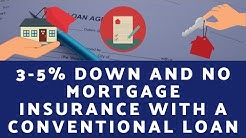Contents
About the author: This article on "FHA Loan vs Conventional Mortgage" was written by Luke Skar of MadisonMortgageGuys.com. As the , his role is to provide original content for all of their social media profiles as well as generating new leads from his website.
What Are The Interest Rates For Home Loans Today What are today’s current mortgage rates? On August 2nd, 2019, the average rate on the 30-year fixed-rate mortgage is 4.02%, the average rate for the 15-year fixed-rate mortgage is 3.59%, and the.
Conventional home loans require a higher credit score than both FHA and VA mortgages. While some lenders will give you an offer with a score in the 620 range, many prefer ratings of at least 700. According to mortgage data company Ellie Mae, the average FICO score for conventional purchase loans in April 2018 was 752.
Interest Rates On Conventional Loans These, too, are conventional loans and the interest rates and associated fees are often quite high. amortized conventional loans homebuyers can take out an amortized conventional loan from a bank, a savings and loan, a credit union, or even through a mortgage broker that funds its own loans or brokers them.
FHA vs Conventional Loans, which is better? Are FHA loans good? compare fha loans and Conventional loans to help you decide which.
Fha Concessions Be sure when negotiating your purchase contract that you ask for closing costs concessions. Most lenders, including FHA HUD insured loans, will allow up to 6% in seller concessions. Most lenders, including FHA HUD insured loans, will allow up to 6% in seller concessions.Conventional Loan Limits fha home loan calculator conventional cash Out Refinance What are the Seasoning Requirements to Refinance a Mortgage. – A cash-out refinance has stricter rules in regards to refinancing with a conventional loan. You will have to own the home for at least six months before any funds can be disbursed on a new loan. In addition, if the home was for sale during the preceding six months, the maximum LTV you can get approved for is 70%.Mortgage calculator with taxes and insurance Use this PITI calculator to calculate your estimated mortgage payment. PITI is an acronym that stands for principal, interest, taxes and insurance.An analysis published this month by CoreLogic of conventional conforming loans (loans that can be sold to Fannie Mae and Freddie Mac and fit within the loan limits in each location, which is $453,100.
*In February 2019, according to Ellie Mae. Which loan is right for me? Choosing between an FHA or conventional mortgage remains a personal decision. Luckily, you can make it easier to decide by taking a long look at your income, financial assets, immediate spending needs and the type of home you’d like or are willing to consider.
Or perhaps, you want to take a step back and repair your credit score before continuing the search, so that you can qualify for a conventional mortgage. This will also help you secure the best.
 Conventional home loans have a lot of their own advantages despite the requirement of a higher credit score. First, there is no required up front mortgage insurance as there is with an FHA. Secondly, if the home buyer borrows less than 80% of the value (20% or more down payment) then a mortgage insurance premium isn’t required.
Conventional home loans have a lot of their own advantages despite the requirement of a higher credit score. First, there is no required up front mortgage insurance as there is with an FHA. Secondly, if the home buyer borrows less than 80% of the value (20% or more down payment) then a mortgage insurance premium isn’t required.
FHA loans are not available for second homes or investment properties. In most counties, the FHA loan limits are less than conventional loans. FHA Loans and Mortgage Insurance. Mortgage insurance is an insurance policy that protects the lender if the borrower is unable to continue making payments.
Conventional loans are a type of conforming loan commonly obtained as Fannie Mae or Freddie Mac loans. Unlike an FHA or Department of Veterans Affairs loan, conventional loans are not federally.
Conventional, FHA, and VA loans are similar in that they are all issued by banks and other approved lenders, but some major differences exist between these types of loans. Read on to learn more about the different characteristics of conventional, FHA, and VA loans as of 2017, and find out which one might be right for you.